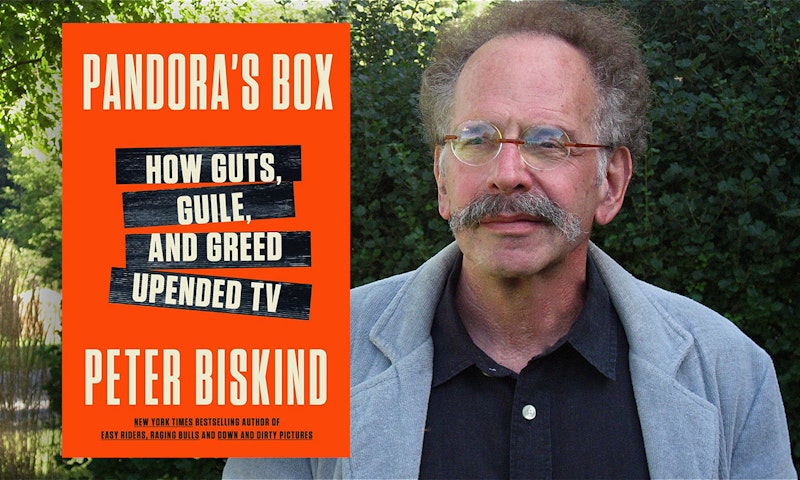HOORAY, WE’RE STILL ALIVE! PRESTIGE TELEVISION IS OVER! May television rot in Hell! May the medium return to the ether, banished to dust after so much damage. Sound may have permanently setback cinema’s development, but if it had been introduced in the 1950s or 1960s, there’s no question that movies would’ve been better because the visual language had that many more years to develop. What if our television system resembled those of Europe, with their abundant subsidies and highbrow programming? (Splice Today contributor Alex Lei was in Italy when Jean-Luc Godard died, and their equivalent of NBC was showing his final film, The Image Book) The absence of state support and the endemic conservatism of Corporate America guarantees that there will never be an American Fassbinder.
If Fassbinder had lived past 37, he very well might’ve ended up at HBO—maybe during their “mad buying spree” in the late-2000s and early-2010s, when he would’ve been in his 60s. Contemporary Werner Herzog ended up there, along with Bret Easton Ellis, Noah Baumbach, Jonathan Franzen, Martin Scorsese, Mick Jagger, and Michael Mann; only half of them got anything made. Peter Biskind’s latest book, Pandora’s Box: How Guts, Guile, and Greed Upended TV, covers the birth of HBO through last year, when “Peak TV” was declared. Pandora’s Box is depressing, detailing dozens of burned bridges, abandoned pilots, shelved movies, billion-dollar flops, and worst of all, filmmakers stuck at home waiting for a “yes” or “no” or battling interference from clueless executives while on set.
Reading books like this growing up, including Biskind’s own Easy Riders, Raging Bulls, extinguished any thought I had of pursuing a film career in Los Angeles, if I ever thought that at all. David Mamet’s Bambi Vs. Godzilla was even more influential, a vituperative warning to all artists to stay away from Hollywood, infested with Mamet’s worst enemy, the producer. Biskind’s previous subjects may have been fraught, but the agony of getting movies like Bonnie and Clyde, Taxi Driver, and The Godfather into theaters as we know them now does sound worth it when you consider what that success means: millions of people packed into movie theaters watching movies that they’ll remember for the rest of their lives. The cinema is a place to kill yourself for.
Not television. I’m thrilled HBO has ceased to exist and, according to Matthew Weiner, “TV is right back where it was. It’s like Mad Men never happened.” No slight on that show, or The Sopranos, The Wire, Breaking Bad, Sex and the City, or Succession—the only half dozen worth remembering. Television was never meant to be “important,” and it remains the same “vast wasteland” of the early-1960s, only brighter and louder. The “boob tube” never got any smarter. Growing up in the 2000s, television shows were becoming permanent for the first time: there were Simpsons tapes, with cherrypicked episodes from this or that season presented out of order, and then there was the annual complete season DVD boxset beginning in 2001. They all littered our Tribeca apartment and later our home in Baltimore.
The first time I binge-watched something was Arrested Development on DVD in 2006, and I got my first hangover. Well before I ever got high or drunk, I knew what it felt like to “come down,” and I never “binged” another show until one night in 2016 when my girlfriend at the time and I decided to finish the last five episodes of Stranger Things. I went out to smoke a cigarette at the end of those five hours, and I thought I had brain damage. I wasn’t buzzing like after a great movie or book, but drained, catatonic, mentally and physically fudgy. Naturally—that’s what happens when you eat too much junk food or do too much coke! Netflix is worse than heroin!
Glenn Close is quoted in Biskind’s book saying that in its prime, streaming and cable television was producing “the modern equivalent of the 19th century novel.” Biskind laments the death of “discomfort viewing,” forecasting a return to network programming that values middlebrow over all else. Again, thank God—“prestige TV” was an intellectual and artistic pandemic, a parade of charlatans and fools wasting their time on something inherently disposable and forgettable. If I could snap my fingers and make all of the above shows disappear, I would a million times over. Send David Chase, David Simon, Vince Gilligan, all of them, into cinema. Television was the only place that would take them 20 years ago, but even then they wanted their television shows “to look like movies.” Everyone wants to “look like movies”—why not just make movies?
Television will always be a time waster, brain rot from end to end. Why mourn its death?
—Follow Nicky Otis Smith on Twitter and Instagram: @nickyotissmith

